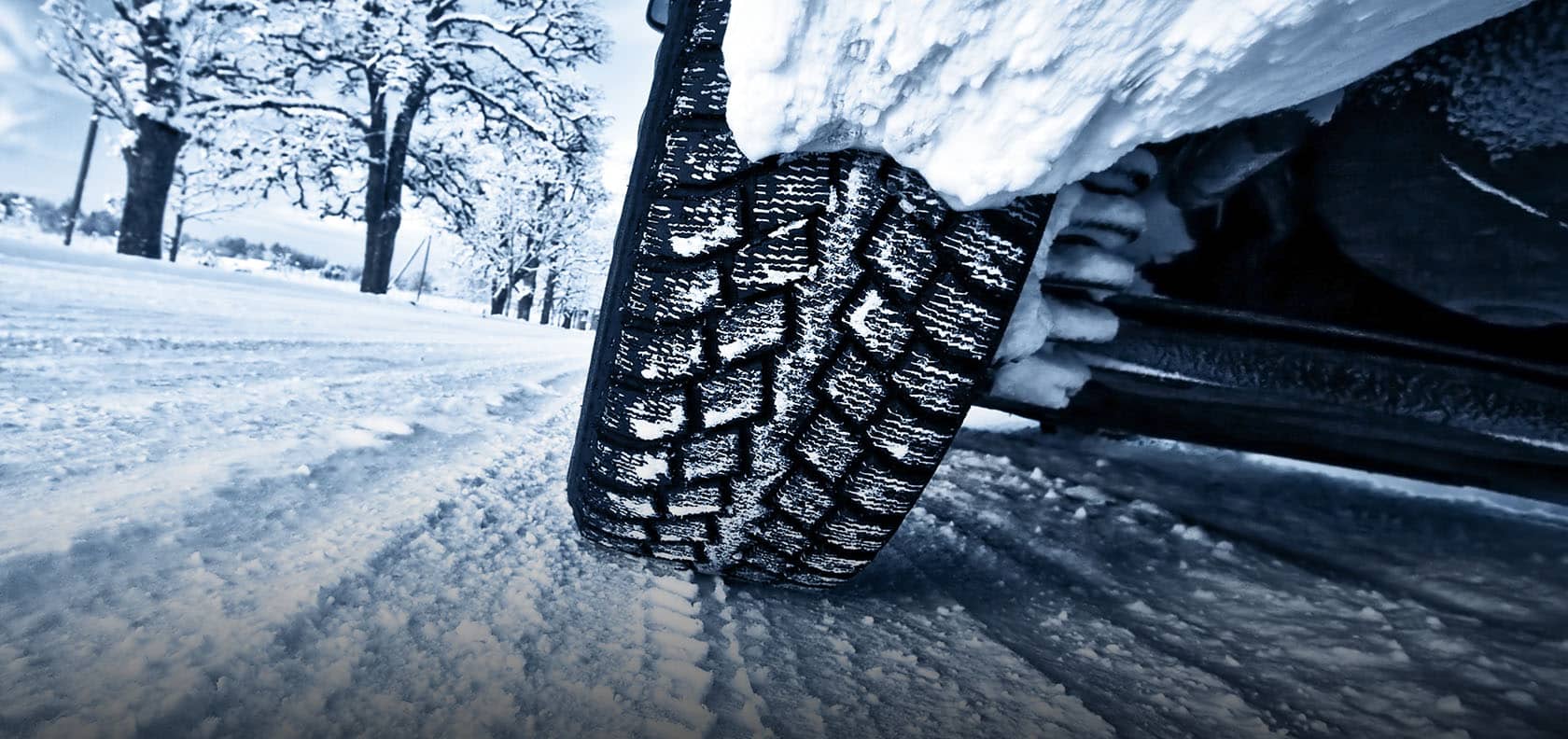If you live in an area of the country that is prone to snow, sleet, and freezing rain, you may want to make the switch to winter tires or snow tires for better traction.
Snow tires vs. all-season tires
Snow tires are made with a specialized rubber that in extreme cold temperatures, allows the tire to grip the road better. Because snow tires also have deeper tread depths, they reduce snow buildup and expel water while driving. Snow tires also have “biting edges,” or tiny slits in the tread, which provide better traction in icy conditions.
All-season tires are designed to perform in a variety of conditions which include dry roads, wet roads, and light winter driving. They are meant for drivers who don’t deal with extreme cold, snow, or ice because when temperatures drop, the rubber in all-season tires hardens. This increases stopping distance and reduces a driver’s control of the vehicle.
Making the switch to snow tires
If you’re thinking of purchasing snow tires for your car, first and foremost, make sure you buy a full set of four. Driving on mismatched tires or tires with different tread patterns or sizes is dangerous, as they can cause your car to spin out, cause braking issues, or cause problems with the wheels gripping.
Other things to consider when purchasing snow tires are:
- Select tires marked with a snowflake icon as most snow tires have this symbol.
- Select the correct tire size for your vehicle.
- Once installed, check the air pressure once a month to make sure they continue to get good traction.
Keep in mind, if you plan to get snow tires installed on your car, the best time to do so is obviously before winter arrives and prior to the temperature dropping below 40 degrees.
The downside to snow tires
The disadvantage of snow tires is that they are more expensive than all-season tires. Another disadvantage is that because they are made with a special rubber compound for driving in winter conditions, driving them in warm weather will wear them down. This is why there is an added cost of swapping your tires back to all-season tires when the weather gets warmer.
Storing snow tires
When you take your snow tires off for the season, it’s important to protect them for the next winter. Experts recommend covering them in black storage bags to keep the rubber from drying and cracking. They should also be kept in a cool, dry place like a garage or basement.
Will I get a discount on my auto policy rate for using snow tires?
Most insurance companies in the United States do not offer a discount for putting snow tires on your car. But keep in mind, having snow tires can help drivers avoid accidents in cold weather conditions which will keep you safer and can keep your auto insurance rates lower.
We hope you find these tips helpful! Remember, snow tires can help in inclement winter conditions, but making sure you take safety precautions while driving in snow, sleet, and ice should be of utmost importance when hitting the road during the winter.
Remember, if you ever need help reviewing your auto insurance policy, an independent agent in your state can always check to ensure you have the right coverage suited to your individualized needs. If you’re not yet insured with MAPFRE and live in Massachusetts, you can always get a fast, free quote today on your Massachusetts car insurance policy.



